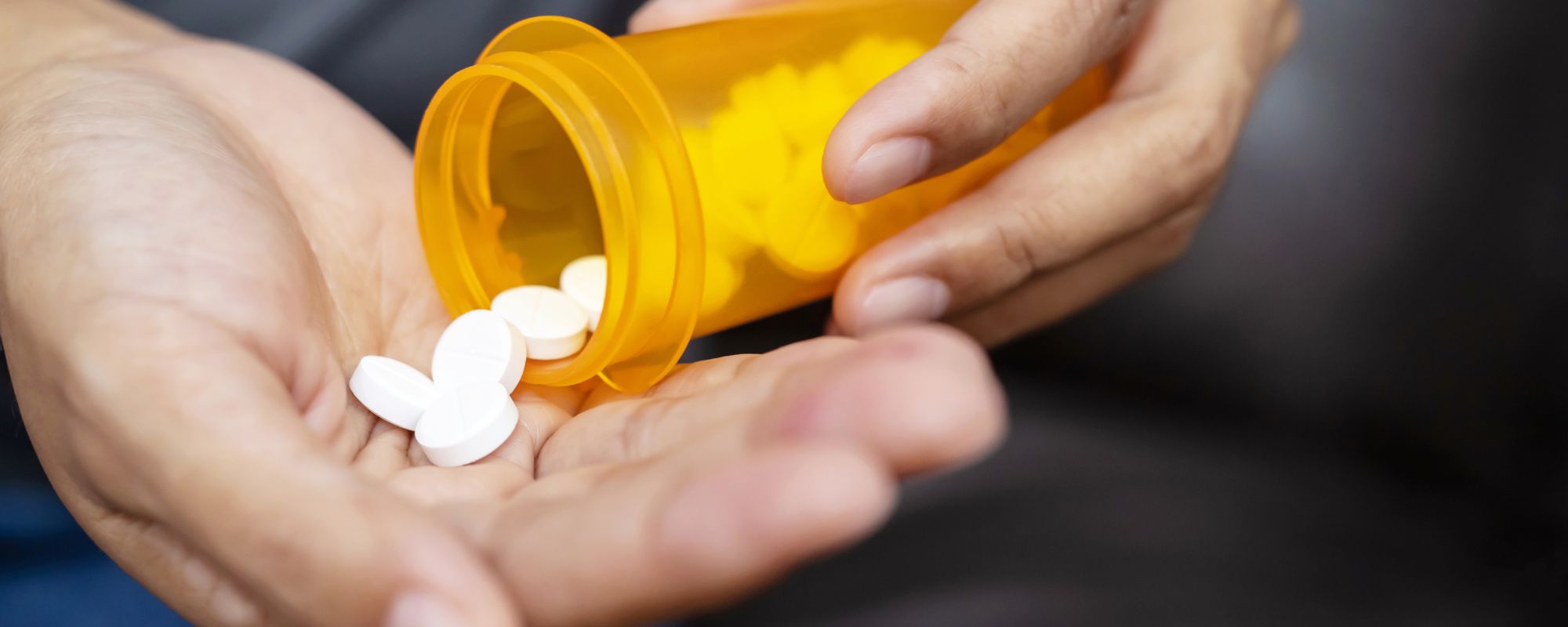Embarking on the journey to reach one year sober is a commendable goal that can profoundly transform your life. Whether you’re just starting your journey to sobriety or you’ve been on this path for a while, these valuable insights, practical tips, and essential resources can help you stay committed to a healthier and happier lifestyle.
What Does It Mean to Be Sober?
Sober living means abstaining from the use of alcohol and drugs. It’s making conscious choices to prioritize your physical and mental well-being over substance use, which can impair judgment and hinder well-being. It’s not simply about avoiding the occasional indulgence.
As far as an official sober definition, Merriam-Webster states:
- Not intoxicated (being in a state of sobriety)
- Abstaining from drinking alcohol or taking intoxicating drugs (refraining from the use of addictive substances)
- Sparing in the use of food and drink (drinking sparingly compared to others)
Living sober can bring about positive changes in many aspects of life, including relationships, career, and overall health. Choosing sobriety empowers you to assert control over your actions, creating genuine and meaningful connections with others. It takes commitment and dedication to maintain sobriety, but the benefits far outweigh the challenges.
How Long Does It Take to Sober Up?
Alcohol and other drugs impact people in different ways. The amount of time the effects last can vary by substance, the amount consumed, your age, your gender, and your use history.
How to Sober Up From Alcohol Fast
If you are wondering how to sober up from alcohol fast, it’s important to know that the only true remedy is time. Sobering up from alcohol typically takes 2 to 4 hours. However it may take longer for your body to process the alcohol out of your system from a standard drink (5 oz of wine, 12 oz of beer, and 1.5 oz of distilled spirits). The more servings (think “shots”) in the alcoholic beverage, the more time you’ll need to sober up.
How to Sober Up From Weed
If you are wondering how to sober up from weed, know that the THC in cannabis, the ingredient that causes the “high,” can last for several hours after use. The time it takes for THC to leave your system depends on how much weed was consumed, how often it’s used, and your body’s metabolism. For this reason, the best way to sober up from weed is to wait it out. Kind in mind, even after the effects of marijuana subside, it can show up in drug tests for several weeks.
How to Sober up From Cocaine
For anyone wondering how to sober up from cocaine, know that the effects of stimulants depend on how much you used and your tolerance, which vary from person to person. Similar to other stimulants like amphetamines and methamphetamines, the effects of cocaine are shorter than other drugs. Generally, a cocaine high can last around 15 to 30 minutes, depending on how it is used. However, the high from smoking crack cocaine lasts around 5 to 10 minutes. While time is the only way to sober up from coke, stimulants can take hours or even several days to fully leave your system.
How to Sober up From Opioids
If you’re looking to sober up from opioids, it’s important to know what type was taken. The effects of opioids can be short lived or long lasting, depending on the type of drug used, how it was consumed, and if you took it with other substances. It also depends on your own tolerance. Depending on the opioid, it can take several hours for the effects of opioids to wear off.
Can You Consider Yourself Sober and Occasionally Drink or Take Drugs?
The answer to this question isn’t a simple yes or no. It really depends on the individual and their reason for using substances. For instance, someone in recovery from alcohol addiction may consider themselves sober while still taking a prescription medication. There are also people who consider themselves “Cali sober,” which means that they are abstinent from all addictive substances excluding marijuana.
While the topic of sobriety is a source of contention within the recovery community, the main thing to consider is the individual’s intentions and motivation for their substance use. Are they using substances as a crutch or coping mechanism? Or are they able to use them in moderation without it interfering with their daily life? Alternatively, are they taking medication under the care of a doctor as a means to benefit their overall well-being? Depending on the answers to these questions, the approach to their recovery may differ.
In cases where substance abuse becomes an unhealthy coping mechanism, it’s important to seek help to learn healthier ways to cope with stress and difficult emotions. This could include inpatient treatment, outpatient therapy, or recovery support groups.
Get confidential help from our addiction and mental health treatment facilities located across the United States. Call to join one of our quality programs today!
Speak With Our Admissions TeamWhat Are the Advantages of Sobriety?
There are many advantages of quitting drinking and drugs as you commit to sober living. When you stop using alcohol or drugs, even for a short period of time, the negative consequences that accompany their use are likely to subside. You may experience:
- Reduced risk of cancer and heart attack
- Better focus and memory
- Better processing of insulin
- Weight loss
- Improved liver function
- Better sleep
- Lowered blood pressure
- Better mental health
- Healthy relationships
- Improved financial status
Once you decide to stop drinking or doing drugs, you’ll find yourself with more time, money, and energy to live your best life. Sobriety also allows you to fully experience life without the numbing effects of substances. You can take part in activities and events without worrying about being under the influence or experiencing a hangover the next day. This opens up opportunities for personal growth, new hobbies, and building meaningful connections with others.
What Happens to Your Physical and Mental Health in Sobriety?
When you choose sobriety, you set out on a journey of holistic healing. Physically, your body undergoes transformative changes. Your liver, once burdened by the effects of alcohol, gets a chance to regenerate, leading to improved overall health. Your immune system strengthens, making you more resilient to illnesses. The increase in energy levels is remarkable, allowing you to engage more actively in life.
Mentally, the fog of substance abuse lifts, and you experience improved cognitive function. For example, a 2019 study found that quitting drinking can lead to significant improvements in mental health, especially for women. Furthermore, after years of abstinence, the mental well-being of the former drinkers was nearly equivalent to people who never drank at all. Your concentration sharpens and emotional stability becomes more consistent.
How to Set Goals in Sobriety
For many people, getting and staying sober is hard. Setting and achieving goals in sobriety is a crucial aspect of maintaining a lasting, positive lifestyle change. Here are some tips to help you set attainable goals on your journey to one year sober:
- Start Small: Begin with short-term goals that are realistic and manageable. This could include attending support group meetings regularly or engaging in a new, healthy activity.
- Be Specific: Clearly define your recovery goals and write them down. Aim for your goal to be specific enough to answer who, what, when, where, and how. The more detailed you can be, the less chance you have of missing your goal.
- Make Measurable Goals: When you attach a specific number to your goal, you’ll feel a greater sense of accomplishment when you’ve fulfilled it. Instead intending to “stay sober,” make it more concrete by saying “complete three months without any substance use.
- Set Achievable Goals: To make it to 1 year sober, your goals need to be realistic and attainable, especially for those in recovery. Setbacks can feel detrimental, which can lead to unhealthy decision-making.
- Adapt and Adjust: Be flexible and willing to adjust your goals as needed. Personal growth often comes with a change in perspective, and your goals should evolve with you.
Your recovery goals can act as a form of relapse prevention. When you have a clear direction and purpose, it’s easier to stay on track, avoid potential triggers, and cope with cravings. Setting goals can also help improve self-esteem and confidence. By achieving small milestones, you’ll feel more capable and in control of your recovery journey.
Tips for Reaching One Year Sober in 2024
Reaching the one-year milestone in sobriety is a significant achievement that requires ongoing dedication and persistence. Here are some additional tips to help you stay on track:
- Educate Yourself: Knowledge is a powerful tool in sobriety. Learn about the benefits of sobriety, the science behind addiction, and the potential consequences of relapse. Understanding the impact of your choices reinforces your commitment.
- Build a Support System: Surround yourself with individuals who understand and support your journey. Whether it’s friends, family, or members of a support group, a strong support system can make a substantial difference. Also, you can try searching online for inspirational sobriety quotes and experiences of others going through the same thing.
- Establish Healthy Habits: Sobriety is not just about abstaining from substances; it’s about adopting a healthier lifestyle. Replace old habits with new, positive routines. This could involve regular exercise, a balanced diet, and sufficient sleep.
- Stay Active: Physical activity is not only beneficial for your body but also for your mental health. Engaging in regular exercise releases endorphins, promoting a sense of well-being and reducing stress.
- Practice Mindfulness and Meditation: Incorporate mindfulness and meditation into your daily routine. These practices can help you stay present, manage stress, and cultivate inner peace.
- Celebrate Milestones: Acknowledge and celebrate your achievements along the way. Whether it’s one week, one month, or six months, each milestone is a testament to your commitment and deserves recognition. Sobriety gifts, purchased for yourself or from others, are a great reminder of your progress and motivation to keep moving forward.
While recovering from a substance use disorder can be difficult, its important to remember that you are capable of building a fulfilling, sober life. Staying sober takes patience and determination, but with the right tools and mindset, you can recover from drugs or alcohol. Trust in the recovery process and never give up on yourself – the rewards of a healthy sober life are worth it.
Looking for quality treatment for substance abuse and mental health that’s also affordable? Aliya Health Group's treatment facilities accept most major insurance providers. Get a free insurance benefits check now!
Check Your CoverageWho Can Help Me Get Sober?
If you find yourself struggling with staying sober and need professional help, a proactive step towards recovery is to seek assistance from an addiction treatment center. Addiction treatment offers a variety of recovery resources and treatment services to support you in your journey toward sobriety.
What Is Addiction Treatment Like?
Like treatment for other chronic diseases such as heart disease or asthma, addiction treatment is not a cure, but a way of managing the condition. Addiction treatment enables people to counteract the addiction’s disruptive effects on their brain and behavior, and regain control of their lives. Knowing that addiction can affect so many aspects of a person’s life, treatment aims to address the needs of the whole person to help them reach one year sober and beyond.
Generally, the addiction treatment process typically starts with a thorough assessment to tailor a program to your specific needs. Medication management, evidence-based therapies, counseling sessions, and support groups are all beneficial components of the treatment plan. In building your individualized treatment plan, you and your counselor can choose from a selection of addiction treatment services that meet your specific medical, mental, social, occupational, family, and legal needs to help in recovery.
Addiction Treatment Options That Support Your Sobriety
To help you reach one year sober and beyond, addiction treatment centers offer a wide selection of evidence-based treatment options. In doing so, you can find what services best support your recovery journey. This involves personalized and comprehensive strategies that address the physical, emotional, and psychological aspects of addiction.
To help you get to one year sober, Aliya Health Group provides a full continuum of care, including:
- Medical detox programs offer medically assisted detoxification, providing critical support and resources to effectively manage withdrawal symptoms. These programs are designed to help individuals navigate the challenging initial phase of recovery with professional medical supervision.
- Residential treatment programs provide a highly structured and supportive environment, ideal for individuals who require round-the-clock medical care and intensive therapeutic intervention. These programs focus on holistic recovery, addressing both the physical and psychological aspects of addiction.
- Outpatient treatment programs offer a flexible level of care for individuals with a strong support system at home. These programs allow you to continue your daily activities, such as work or school, while attending scheduled therapy sessions to promote long-term recovery.
- Sober living programs provide a transitional living environment for individuals who are in or have completed outpatient treatment. These residences offer a built-in recovery community, allowing you to gradually transition back into independent living while staying sober.
- Aftercare services play a crucial role in the continuum of care, providing ongoing support and resources for those in long-term recovery. These services ensure you have access to the necessary support networks and guidance to stay sober and navigate life after addiction treatment.
Reach One Year Sober With Help From Trained Professionals
Achieving one year sober in 2024 is an empowering and life-changing goal. By understanding the value of sobriety, prioritizing your physical and mental health, setting realistic goals, and seeking support when needed, you can navigate this transformative journey successfully.
If you or a loved one are thinking of seeking treatment for addiction to alcohol but have questions, call us at 888-965-3085. Contact Aliya today and let us help you take the first step.
- Sober Definition & Meaning – Merriam-Webster
- What Is A Standard Drink?
- How to Get Unhigh: Sobering Up From Weed – GoodRx
- Stimulant Abuse: Pharmacology, Cocaine, Methamphetamine, Treatment, Attempts at Pharmacotherapy – PMC
- Commonly Used Drugs Charts | National Institute on Drug Abuse (NIDA)
- Short-term abstinence from alcohol and changes in cardiovascular risk factors, liver function tests and cancer-related growth factors: a prospective observational study | BMJ Open
- Change in moderate alcohol consumption and quality of life: evidence from 2 population-based cohorts | CMAJ

















